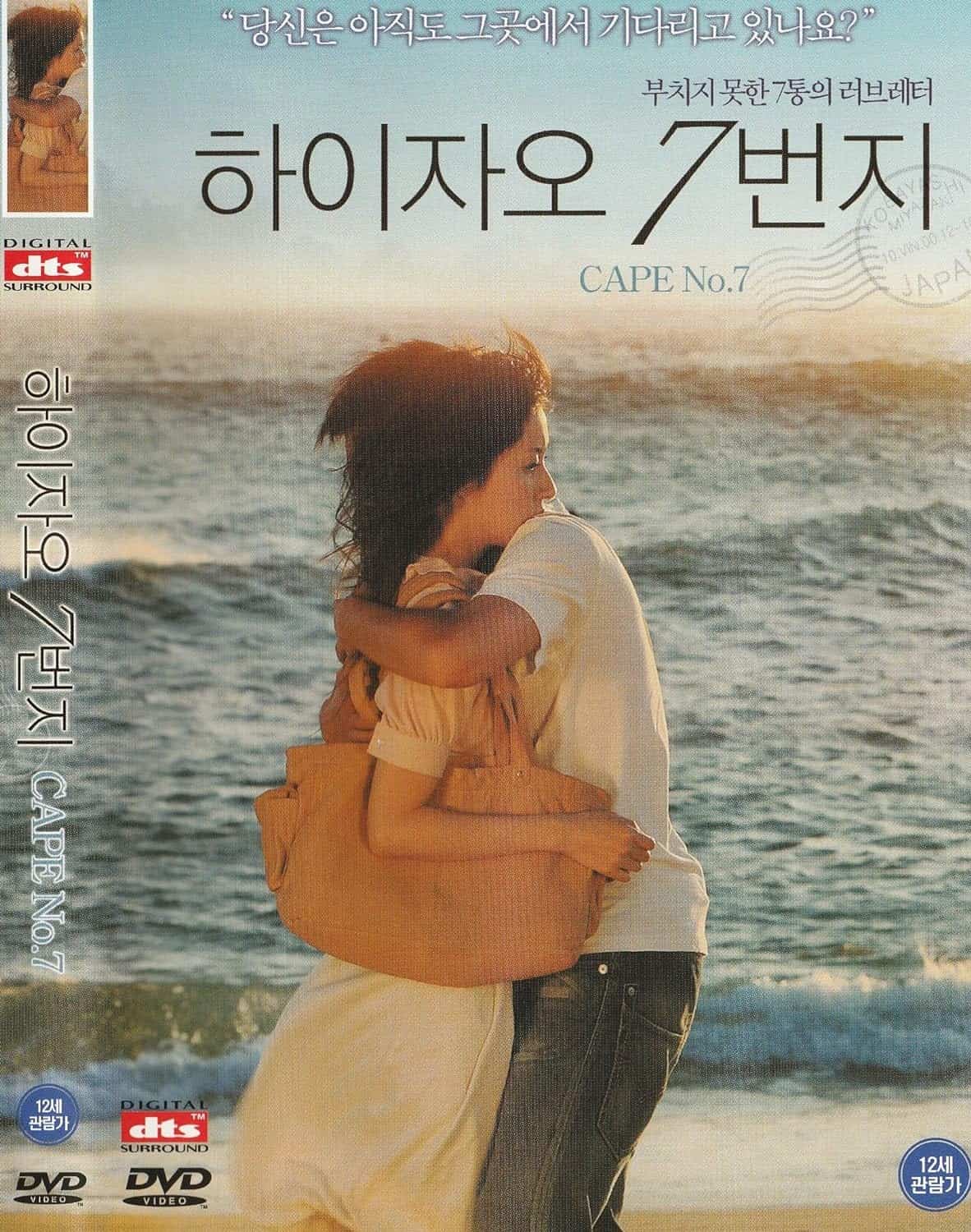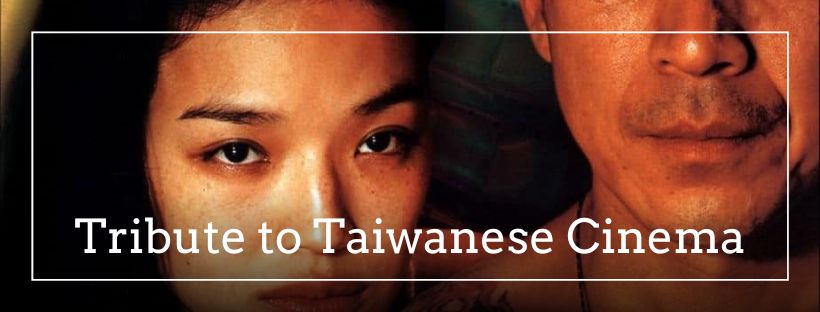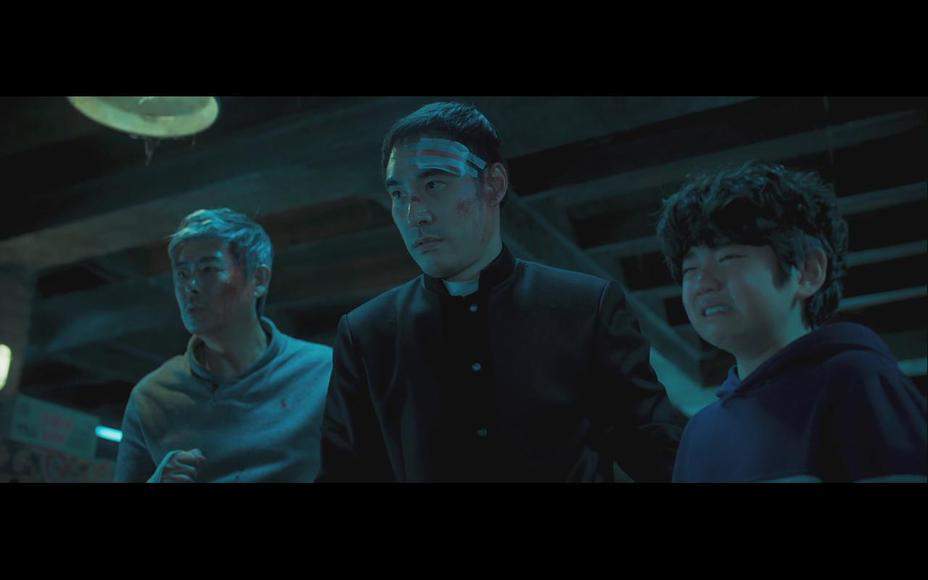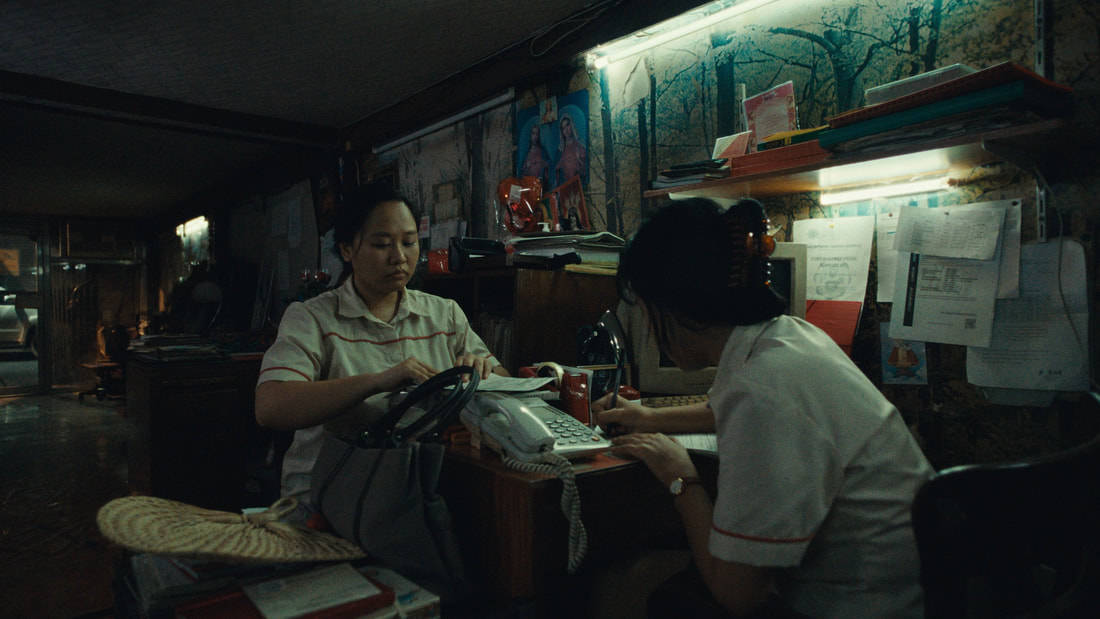The first feature of the Taiwanese king of the box office (with 3 of the ten top-grossing domestic films, including 1 and 2 being his own) was indicative of what was about to follow, with “Cape No 7” still holding the top spot in the aforementioned list. The film won 6 awards in the Golden Horse and a number internationally, while its success came even though the promotional campaign was not particularly extensive, the two leading actors Van Fan and Chie Tanaka only had minor acting experience and a number of the supporting roles were filled by non-actors.
Buy This Title
on Amazon by clicking on the image below
The film begins in the 1940s, when an unnamed teacher dispatched to the southernmost town of Hengchun falls in love with a local girl with the Japanese name Kojima Tomoko. After the Surrender of Japan, the teacher is forced to return home as Taiwan was placed under the administrative control of the Republic of China. On his trip home, he pens seven love letters to express his regret for leaving the girl, who originally planned to elope with him to Japan.
More than 60 years later, Aga, a struggling young rock band singer, leaves Taipei to return to his hometown of Hengchun. There, his step father, the Town Council Representative, arranges a position for him as a postman, replacing the aging Old Mao on leave after a motorcycle accident broke his leg. One day, Aga comes across an undeliverable piece of mail that was supposed to be returned to the sender in Japan; the daughter of the now deceased Japanese teacher had decided to mail the unsent love letters to Taiwan after discovering them. Aga unlawfully keeps and opens the package to discover its contents. Meanwhile, a local resort hotel in nearby Kenting National Park is organizing a beach concert featuring Japanese pop singer Kousuke Atari, but Aga's step father makes use of his official position to insist that the opening band be composed of locals. Tomoko, an over-the-hill Mandarin-speaking Japanese fashion model dispatched to Hengchun, is assigned the difficult task of managing this hastily assembled band, led by Aga along with six other locals of rather particular backgrounds.
Wei Te-sheng directs a film that implements a mashup of genres and crowd-pleasing elements in order to present a highly entertaining movie, and in that regard, it is easy to say that he succeeds to the fullest. The historical contexts add a sense of nostalgia and mystery to the narrative, whose main elements, though, are of musical, comedy, drama and romance variety. The last aspect, expectedly, revolves around Aga and Tomoko, with the name of the latter connecting the present with the past, something that also applies to Tomoko's potential path, which adds a will-they-won't-they element to the movie. At the same time though, there are other ‘romances' unfolding within the story, with guitarist Rauma's fixation on his ex-wife and drummer Frog's infatuation with his boss's wife moving in the same path.
Regarding the comedy, the grouping of misfits is interestingly implemented through a prism of inclusion, with Wei's characters including all ages, from a very young girl to an octogenarian, and genealogies connected to the island, with Tomoko being Japanese, Rauma of the Rukai Tribe and Malasun, the bassist, of Hakka origin. This approach can be perceived as another crowd-pleasing element but the message for unity and against any type of segregation does echo quite strong throughout. At the same time, the various episodes the protagonists are parts of, with Tomoko's frustration that eventually borders into hopelessness, the Representative's desperate efforts to help his step-son by any means possible, and the question of who will make the band being quite amusing to watch. Regarding the Representative, one could say that his character is additionally implemented as a comment regarding corruption, although the approach is more playful than accusatory.
Of course, “Cape No. 7” focuses quite intently on music, with the soundtrack being one of the most crucial elements of the narrative. In that regard, it is easy to say that the rock (ish) tracks were a pleasant surprise, since usually, this kind of movies go towards the corny pop path. The latter are not missing completely, particularly in the finale, but the overall aesthetics follow the aforementioned genre.
And mentioning the finale, this is where the movie falters the most, with it being rather prolonged, forcibly sentimental, quite promotional for Kousuke Atari, and including rather cheesy music, in a style that has very little to do with the rest of the movie. The main romantic arc somewhat saves the finale, but definitely not fully.
Chie Tanaka as Tomoko is quite appealing to watch, even in the almost cliched role of the neurotic woman, while Van Fan plays the handsome, melancholic, silent ‘boy' to perfection, in equally cliched fashion. Tanaka occasionally loses her sense of measure, but in the moments she does not overreact, is quite good. The one who steals the show, however, is Ma Ju-lung as the Council Representative, whose ‘bigger than life' attitude and the comic ways he tries to enforce his will are the main source of comedy here.
Chin Ting-chang's cinematography is expectedly bright and colorful, with some of the shots of the area being particularly beautiful. The SFX do not work that well, but thankfully are restricted only in the past arc. Milk Su and Lai Hui-chuan's editing results in a fittingly fast pace, while the flashbacks are well embedded in the narrative, as are the moments of narration, with the calm and soothing voice of Yukihiko Kageyama working quite well. Some trimming, particularly in the last part of the movie would definitely help, although this is not exactly a significant issue.
In the vibrant tapestry of “Cape No. 7,” Wei Te-sheng intertwines nostalgia, music, and romance, crafting an ode to unity that remains entertaining from beginning to end, in a masterclass on mainstream/crowd-pleasing cinema.

















